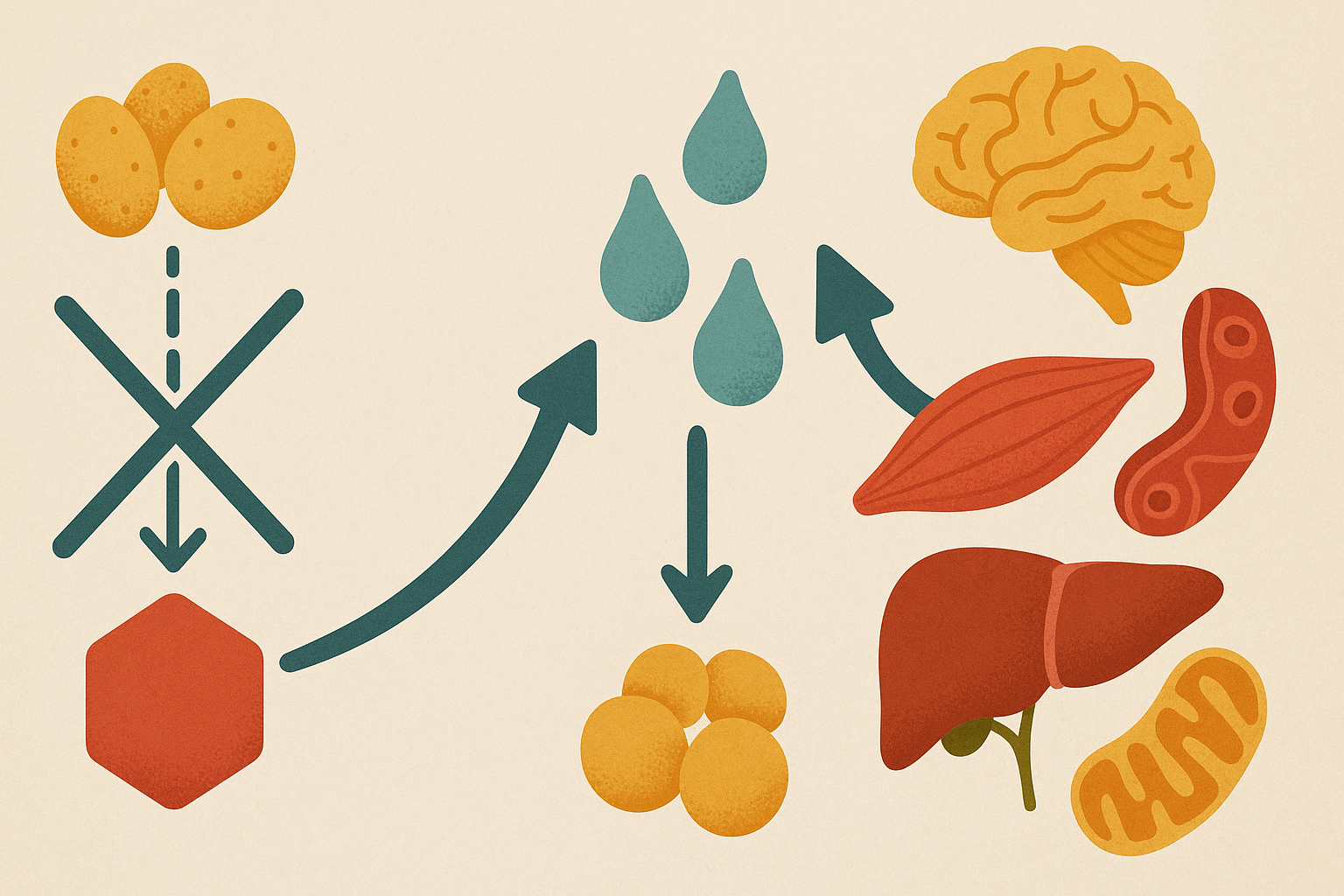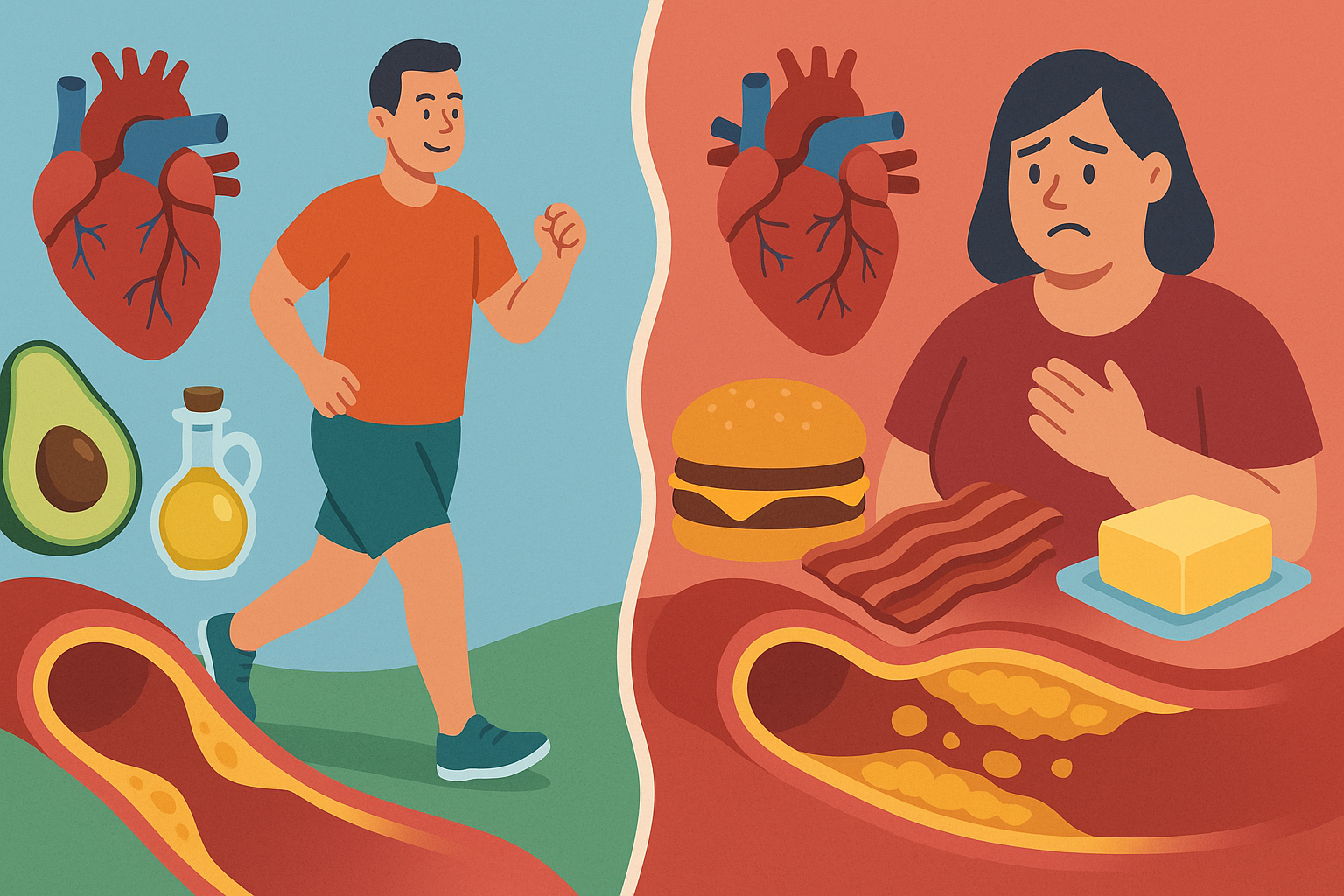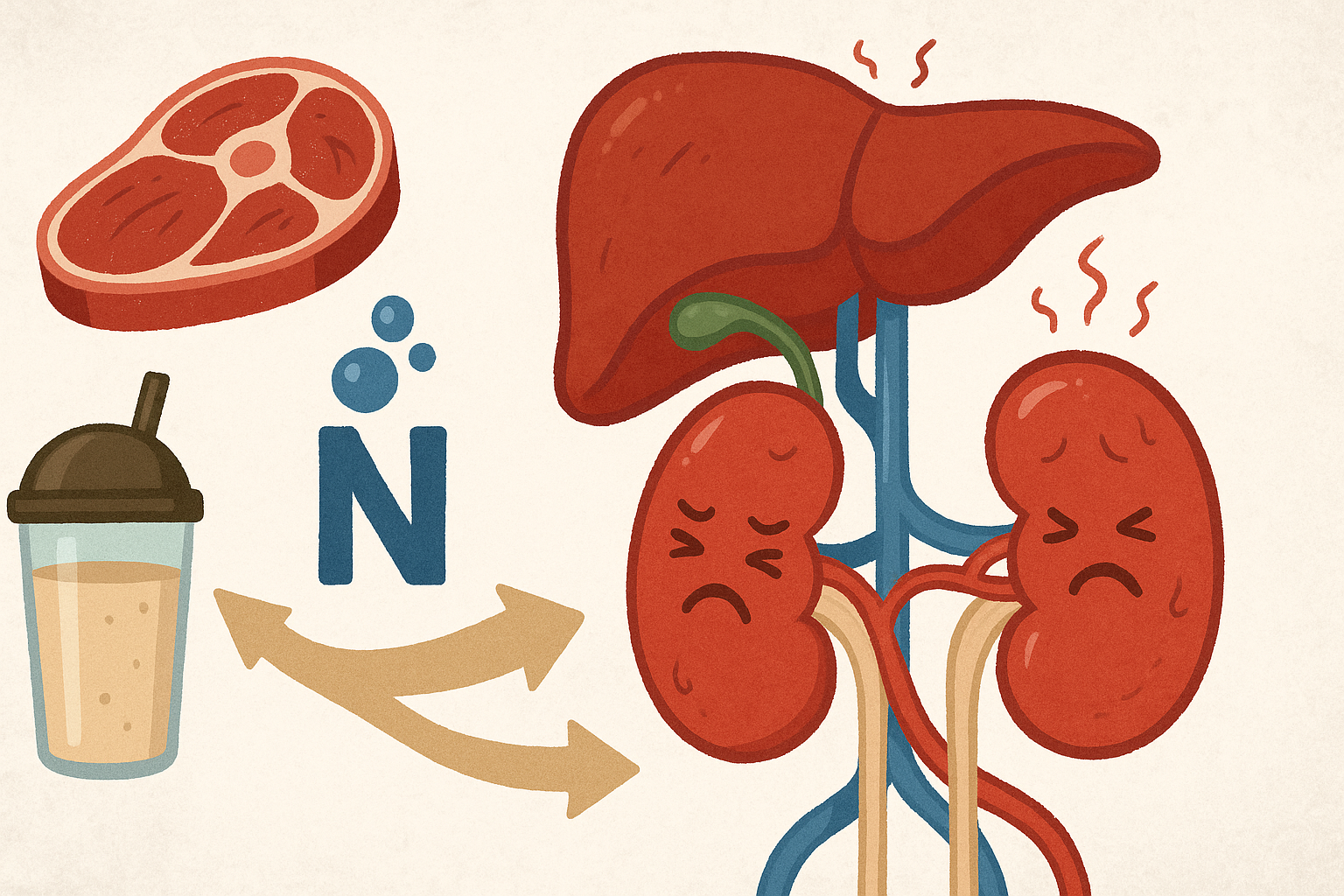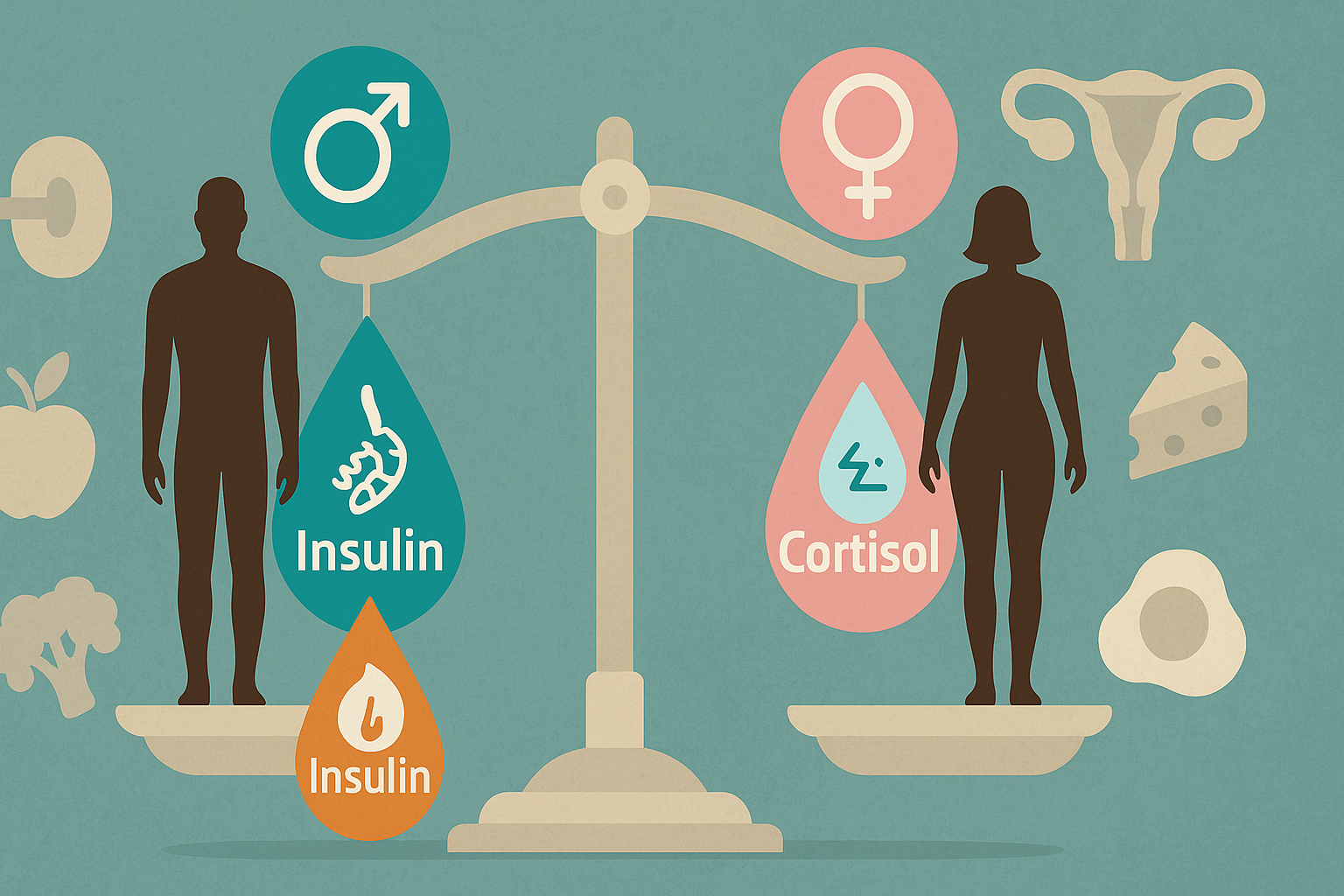In the realm of modern dieting trends, the ketogenic diet has emerged as both a celebrated tool for rapid weight loss and a controversial subject in discussions about long-term health. As health-conscious individuals turn to high-protein, low-carbohydrate meal plans in hopes of transforming their bodies and boosting cognitive performance, one question continues to surface: is keto dangerous? This article dives deep into the science, myths, and practical implications surrounding the ketogenic lifestyle to offer an informed, balanced perspective on its risks, benefits, and suitability for sustainable health.
You may also like : The Ultimate Guide to Choosing a High Protein Diet Name That Fits Your Goals

Understanding the Basics of the Ketogenic Diet
To comprehend whether or not the ketogenic diet poses health risks, it is essential first to understand what the diet entails. The ketogenic diet is a high-fat, moderate-protein, and low-carbohydrate eating plan designed to push the body into a state known as ketosis. In this metabolic state, the body begins to rely on ketones—produced by the liver from fat—as its primary fuel source instead of glucose derived from carbohydrates.
Ketosis, though a natural metabolic adaptation, is not the body’s default energy pathway. In most cases, glucose from carbohydrates fuels the brain, muscles, and other organs. When carbohydrates are severely restricted, typically to less than 50 grams per day, insulin levels drop, and fat metabolism increases, leading to elevated ketone production. Supporters of keto argue that this shift promotes efficient fat burning, weight loss, and enhanced mental clarity. Critics, however, question whether long-term reliance on ketosis is safe or sustainable.

Is Keto Dangerous for Heart Health?
A central concern in the debate about whether keto is dangerous revolves around cardiovascular health. Traditional dietary guidelines have long warned against high-fat consumption, particularly saturated fats, which are abundant in many popular keto foods such as bacon, butter, and cheese. Critics worry that these foods could increase cholesterol levels and contribute to arterial plaque buildup.
Yet, emerging research complicates this narrative. Several studies suggest that ketogenic diets can lead to favorable changes in lipid profiles, including increased HDL (“good”) cholesterol and decreased triglycerides. In some cases, LDL (“bad”) cholesterol may increase, but the shift appears to be toward larger, less atherogenic LDL particles, which may be less harmful. Additionally, the ketogenic diet has been shown to reduce markers of inflammation and insulin resistance, both of which are linked to heart disease.
Still, these outcomes may vary significantly between individuals. Genetic factors, pre-existing health conditions, and food choices within the ketogenic framework can all influence cardiovascular risk. Consuming whole-food fats from sources like avocados, olive oil, and nuts is vastly different from relying on processed meats and artificial sweeteners. Thus, while the question “is keto dangerous” cannot be answered universally, those with underlying heart conditions should consult a healthcare provider before adopting the diet.
Is Ketosis Bad for You When Practiced Long-Term?
Ketosis itself is not inherently harmful; in fact, it is a natural process that the body uses during periods of fasting or carbohydrate restriction. However, prolonged or poorly managed ketosis may have unintended consequences. One of the concerns voiced by health professionals is the risk of nutritional deficiencies. Because the keto diet restricts many fruits, legumes, and whole grains, followers may lack essential vitamins and minerals such as magnesium, potassium, folate, and certain B vitamins.
Moreover, some people report side effects during the initial transition into ketosis, commonly referred to as the “keto flu.” Symptoms may include fatigue, dizziness, nausea, irritability, and constipation. These typically subside within a week, but they highlight the body’s struggle to adapt to an alternative energy source.
Another important consideration is the impact of sustained ketosis on gut health. The ketogenic diet tends to be low in fiber due to its restriction of carbohydrate-rich fruits and whole grains, which are critical for feeding beneficial gut bacteria. A poorly diversified gut microbiome has been linked to a range of health issues, including impaired immune function and chronic inflammation.
For individuals who wonder, “is ketosis dangerous,” the answer again lies in context. Ketosis can be safe and beneficial when managed carefully with appropriate supplementation and food choices. However, ignoring the long-term implications of a fiber-deficient, high-fat diet could compromise overall health.

Evaluating the Keto Diet’s Effect on Kidney and Liver Function
The high-protein component of many ketogenic diets also raises questions about kidney and liver function. While the standard ketogenic diet is technically moderate in protein, many individuals mistakenly adopt a version that is excessively protein-heavy. This misinterpretation can place added stress on the kidneys, particularly for those with pre-existing renal conditions.
Protein metabolism results in the production of nitrogenous waste, which the kidneys must filter and excrete. For healthy individuals, this added workload is typically manageable. However, people with compromised kidney function may experience an accelerated decline if protein intake remains consistently elevated. This has fueled the belief that high-protein diets are inherently harmful, though the evidence does not support this for the general population.
As for the liver, its central role in ketone production makes it a critical organ in any ketogenic regimen. While a healthy liver can typically manage this task efficiently, those with liver disorders such as nonalcoholic fatty liver disease (NAFLD) should approach keto cautiously. Ironically, some studies suggest that ketogenic diets may actually reduce liver fat and improve markers of liver health in the short term. More research is needed to determine the long-term effects.
So, is keto dangerous for kidney and liver function? For most healthy individuals, no. But for those with pre-existing conditions or who misunderstand keto as a high-protein diet, the risks are worth careful consideration.
Weight Loss and Metabolic Benefits: Do the Rewards Outweigh the Risks?
One of the most compelling arguments in favor of the ketogenic diet is its ability to facilitate rapid and significant weight loss. By drastically cutting carbohydrates, the body sheds water weight initially and then taps into fat stores for ongoing fuel. This metabolic advantage appeals to individuals struggling with obesity or metabolic syndrome.
Moreover, ketogenic diets have demonstrated improvements in glycemic control, especially for individuals with type 2 diabetes. Reductions in blood sugar levels, insulin requirements, and hemoglobin A1c have been consistently observed in clinical trials. These benefits, however, often require continuous dietary adherence. Reverting to a standard high-carb diet can result in rapid weight regain and metabolic dysfunction.
The question remains: is keto good for you in the long term? While many users report improved energy, cognitive clarity, and appetite suppression, the restrictive nature of the diet can be difficult to maintain. Social situations, food accessibility, and the monotony of meal options often lead to dietary fatigue and eventual abandonment. Long-term adherence, rather than short-term gains, should be the metric by which the safety and efficacy of any diet are measured.
Is Keto Dangerous for Athletic Performance and Physical Activity?
Athletes and fitness enthusiasts often question whether the keto diet supports high-intensity training and performance. Glycogen, the storage form of glucose in muscles, serves as the primary energy source during anaerobic activities like sprinting, weightlifting, and high-intensity interval training. In a ketogenic state, glycogen stores are significantly depleted, leading to potential performance drawbacks.
Some athletes have adapted to using ketones as an alternative fuel source, especially in endurance sports where fat oxidation provides a steady energy stream. This adaptation can take several weeks and may result in improved fat utilization, but it does not fully replicate the explosive energy that carbohydrates provide. Therefore, for high-intensity, short-duration sports, ketosis may be less than ideal.
Despite these limitations, the keto diet may offer advantages for individuals aiming to reduce body fat while maintaining lean muscle mass. The appetite-suppressing and muscle-sparing effects of ketones may support these goals, provided that the individual is consuming adequate protein and engaging in resistance training. Still, when asking, “is ketosis bad for you” in the context of athletic performance, the answer hinges on the type of sport and the athlete’s individual physiology and goals.

Environmental Impact of High-Fat, Animal-Based Keto Diets
In the era of climate change and environmental consciousness, the ecological footprint of dietary choices has come under scrutiny. The ketogenic diet, particularly in its popular carnivorous or animal-heavy forms, poses notable sustainability challenges. High consumption of beef, pork, cheese, and other animal products contributes to greenhouse gas emissions, deforestation, and water resource depletion.
Plant-based versions of keto, using avocados, nuts, seeds, olive oil, and low-carb vegetables, offer a more environmentally sustainable alternative. However, even these plant-based options can have drawbacks. For example, the global demand for avocados has led to deforestation in certain regions, and nut farming often requires significant water usage.
To address these concerns, a growing number of keto practitioners and experts are advocating for an “eco-keto” approach. This model emphasizes sustainable sourcing, seasonal eating, and the use of ethically raised animal products. By considering both health and environmental outcomes, eco-keto provides a more holistic framework for those who wish to align personal wellness with planetary well-being.

Psychological and Cognitive Effects: Brain Fog or Mental Clarity?
The brain’s reliance on glucose for fuel has long been considered sacrosanct, but emerging evidence suggests that ketones can serve as a viable and even preferable alternative under certain conditions. Some proponents of the ketogenic diet report improved mental clarity, focus, and mood stabilization after transitioning into ketosis. These benefits are attributed to the steady supply of ketones, which avoid the blood sugar fluctuations associated with carbohydrate-rich diets.
Intriguingly, ketogenic diets have a well-established history in the treatment of neurological disorders such as epilepsy. For nearly a century, therapeutic ketosis has been used to reduce seizure frequency in drug-resistant epilepsy, especially in children. More recent research is exploring the use of ketogenic diets in managing conditions like Alzheimer’s disease, Parkinson’s disease, and bipolar disorder.
However, the transition into ketosis can temporarily exacerbate cognitive symptoms for some individuals. During the initial phase, as the body adjusts to burning fat for fuel, brain fog, fatigue, and irritability are common. These symptoms often resolve within days, but they underscore the importance of adequate electrolyte intake and hydration during the transition.
The question, “is ketosis dangerous for cognitive health?” cannot be answered definitively. While there is promising evidence for its neurological benefits, the experience varies widely between individuals and depends on proper implementation and medical supervision.
Addressing the Micronutrient Challenge on Keto
One of the persistent criticisms of the ketogenic diet is its potential to cause micronutrient deficiencies. By eliminating entire food groups such as fruits, legumes, and whole grains, keto followers may inadvertently reduce their intake of essential vitamins, minerals, and antioxidants. Over time, this can lead to deficiencies in nutrients like magnesium, calcium, vitamin C, and certain B-complex vitamins.
These deficiencies can manifest as muscle cramps, fatigue, compromised immune function, and impaired bone health. To mitigate these risks, careful meal planning and supplementation are critical. Incorporating keto-friendly, nutrient-dense foods like leafy greens, seeds, nuts, organ meats, and fermented vegetables can help bridge the nutritional gap.
While the diet’s restrictiveness is a potential drawback, it is not insurmountable. For those who are vigilant and well-informed, the risk of micronutrient deficiencies can be minimized. Still, those who wonder, “is keto dangerous for long-term nutritional balance?” should be aware that maintaining adequate micronutrient intake requires intentional effort and possibly professional guidance.
Social Dynamics and the Keto Community
The rise of the ketogenic diet has been accompanied by the growth of a strong, often fervent online community. From Reddit threads to Instagram influencers, keto enthusiasts frequently share progress photos, meal ideas, and personal anecdotes. This digital community offers both motivation and accountability, creating a sense of belonging that can be instrumental in long-term adherence.
However, the social dynamics of keto groups can also be exclusionary and dogmatic. There is sometimes pressure to adhere rigidly to “clean keto” principles, leading to judgment or shame directed at those who deviate. Misinformation can also spread rapidly in these communities, with anecdotal claims often presented as universal truths.
It is vital for keto practitioners to engage with evidence-based sources and maintain a critical lens when navigating social media spaces. Registered dietitians, clinical researchers, and certified health coaches should be the go-to voices in these discussions, ensuring that the community’s strength is grounded in science, not speculation.
Emerging Science: Ketogenic Diets and Cancer Therapy
Beyond metabolic and neurological disorders, the ketogenic diet is increasingly being explored for its potential role in cancer treatment. Preliminary research suggests that ketosis may help starve certain types of cancer cells, which rely heavily on glucose for growth and proliferation. By limiting glucose availability and reducing insulin levels, the ketogenic diet may inhibit tumor progression.
Several animal studies and small-scale human trials have shown promising results, particularly in glioblastoma, a highly aggressive form of brain cancer. Ketogenic diets have been associated with slowed tumor growth and enhanced sensitivity to radiation and chemotherapy. Nonetheless, these findings are still preliminary, and more robust clinical trials are needed to determine efficacy, safety, and optimal protocols.
It’s important to note that ketogenic diets are not a substitute for standard cancer treatments. Rather, they are being investigated as adjunct therapies that may complement existing interventions. As the field of metabolic oncology evolves, personalized keto-based nutrition plans may become part of integrative cancer care, offering new hope in an area where therapeutic options remain limited.

Keto and Hormonal Balance: A Gendered Perspective
The ketogenic diet’s effects on hormonal health have emerged as an important area of study, particularly when considering gender differences. In women, drastic carbohydrate restriction can disrupt hormonal signaling, especially in those with low body fat or high physical activity levels. Menstrual irregularities, amenorrhea (absence of menstruation), and decreased fertility have been reported in some female keto dieters.
Conversely, for women with polycystic ovary syndrome (PCOS), the ketogenic diet may offer hormonal relief. PCOS is often linked with insulin resistance and elevated androgen levels. By improving insulin sensitivity and promoting weight loss, keto can help restore ovulation and reduce symptoms such as acne and hirsutism.
In men, ketogenic diets may influence testosterone levels and sexual health. While some studies suggest that weight loss and reduced inflammation from keto can boost testosterone, others raise concerns about prolonged caloric restriction and its potential to suppress reproductive hormones.
Given these gender-specific responses, hormonal monitoring should be part of any long-term keto protocol. Tailoring macronutrient intake, cycling carbs, or integrating refeed days may help mitigate adverse hormonal effects, particularly for reproductive-aged individuals.
Is Keto Dangerous for Specific Populations?
While the ketogenic diet may be well-tolerated and even beneficial for many healthy adults, it is not suitable for everyone. Pregnant and breastfeeding women, for instance, have higher nutrient and energy demands, and carbohydrate restriction may interfere with fetal development and milk production. Similarly, children and adolescents undergoing critical growth phases may not benefit from the restrictive nature of keto unless prescribed for therapeutic purposes under medical supervision.
Individuals with a history of disordered eating may also find the rigid structure of the ketogenic diet triggering. The emphasis on food tracking, portion control, and avoidance of entire food categories can reinforce obsessive eating patterns and contribute to psychological distress.
Furthermore, those taking medications for diabetes, hypertension, or mood disorders should exercise caution. Transitioning to ketosis can significantly impact blood sugar, electrolyte balance, and medication efficacy, necessitating frequent monitoring and possible dosage adjustments.
In light of these considerations, asking “is ketosis dangerous” becomes especially relevant for vulnerable populations. In such cases, the ketogenic diet should only be undertaken with medical oversight and personalized modifications.

Is Keto Good for You Compared to Other Diets?
To evaluate whether the ketogenic diet is beneficial, it is helpful to compare it with other evidence-based eating plans. Mediterranean, plant-based, and DASH (Dietary Approaches to Stop Hypertension) diets emphasize whole foods, moderate macronutrient distribution, and diverse plant intake. These diets have robust scientific backing for reducing the risk of chronic diseases, supporting gut health, and improving longevity.
Keto, by contrast, offers powerful short-term results but presents challenges in terms of variety, sustainability, and social flexibility. The long-term data on keto’s effects on health outcomes such as mortality, cancer risk, and cardiovascular events is still emerging. While ketogenic strategies may serve as effective therapeutic tools for metabolic disorders, they may not provide the same balance and longevity benefits as more inclusive dietary patterns.
So, is keto good for you when compared with other approaches? It can be, depending on your goals, health status, and willingness to maintain the required lifestyle. But for most people, it should be seen as one tool among many, not a one-size-fits-all solution.
FAQ: Exploring the Safety, Risks, and Realities of the Ketogenic Diet
1. How can long-term keto dieting impact your gut microbiome?
Emerging research suggests that while the ketogenic diet may support short-term weight loss and blood sugar control, it could alter the diversity of the gut microbiome over time. Low fiber intake on keto—due to the elimination of most fruits, legumes, and whole grains—can reduce the population of beneficial bacteria like Bifidobacteria. This shift may impact immune regulation, nutrient absorption, and even mental health through the gut-brain axis. While these changes don’t definitively answer the question “is keto dangerous,” they highlight a possible concern that long-term keto followers should monitor, especially if they experience digestive issues or mood changes. Including fermented foods or targeted prebiotics may help mitigate these effects.
2. Does the ketogenic diet affect hormone levels differently in men and women?
Yes, the hormonal response to the ketogenic diet appears to be sex-specific. In women, particularly those of reproductive age, drastically reducing carbohydrates can lower leptin levels and suppress reproductive hormones like luteinizing hormone (LH), potentially affecting ovulation. Some women may also experience heightened cortisol production, which can interfere with sleep and thyroid function. In contrast, men often experience increased testosterone and improved insulin sensitivity. These hormonal nuances add complexity to the ongoing debate around “is keto good for you” and suggest that personal health goals and biological sex should guide keto adoption and duration.
3. What do cardiologists say about the ketogenic diet’s long-term heart health impact?
Cardiologists remain divided on whether keto improves or endangers cardiovascular health. While the diet often reduces triglycerides and improves HDL (good cholesterol), it may raise LDL (bad cholesterol) in a subset of individuals, particularly those with familial hypercholesterolemia or certain APOE genotypes. Some experts argue that elevated LDL isn’t necessarily dangerous if inflammatory markers remain low, while others maintain that any rise in LDL increases heart disease risk. This divergence in interpretation complicates the broader question, “is keto dangerous,” especially for those with a family history of cardiovascular conditions. Advanced lipid testing and arterial imaging may offer more personalized risk assessments.
4. Is keto safe for people with anxiety or depression?
The ketogenic diet may initially benefit individuals with anxiety or depression by stabilizing blood sugar and supporting neurotransmitter balance. However, long-term adherence can sometimes backfire. Some people report mood swings, brain fog, or increased irritability after several months—possibly due to micronutrient imbalances, gut microbiome shifts, or suppressed serotonin pathways. When evaluating whether “is ketosis bad for you” applies in mental health contexts, it’s essential to monitor psychological changes and consider cyclical keto strategies. Incorporating more magnesium, omega-3s, and B-vitamins may help sustain mental clarity during ketosis.
5. How does keto affect athletic performance in strength-based vs. endurance sports?
Endurance athletes sometimes benefit from keto’s fat-adapted energy state, especially in ultra-endurance sports where glycogen depletion is inevitable. However, for strength-based or high-intensity activities like sprinting and weightlifting, keto often impairs performance due to the limited availability of fast-access glycogen. Reduced insulin signaling can also impair muscle protein synthesis over time. Whether “is ketosis dangerous” applies depends on the athlete’s sport, training demands, and ability to adapt metabolically. Some athletes use targeted or cyclical keto variations to time carb intake around workouts without exiting ketosis entirely.
6. Why do some people experience hair loss on the ketogenic diet?
Hair loss during the first few months of keto is often linked to sudden caloric restriction, rapid weight loss, and reduced nutrient availability—particularly of zinc, biotin, and protein. The body prioritizes survival functions over hair growth when under stress. Although this side effect typically resolves as the body adapts, it contributes to the narrative questioning “is keto good for you” from a cosmetic and self-esteem standpoint. Increasing caloric intake, diversifying protein sources, and supplementing strategically may help prevent or reverse keto-induced hair thinning.
7. The Truth Behind the Question: Is Keto Dangerous for Certain Populations?
The ketogenic diet may pose significant risks for individuals with liver disorders, gallbladder disease, pancreatic insufficiency, or a history of eating disorders. These conditions can be worsened by high fat intake or restrictive eating behaviors. People on medications for diabetes or blood pressure must also be cautious, as ketosis can cause sudden drops in glucose or electrolytes. For these vulnerable groups, the question “is keto dangerous” isn’t theoretical—it’s a real clinical consideration. Medical supervision, gradual dietary transition, and regular lab monitoring are essential safeguards.
8. Is Keto Dangerous or a Therapeutic Tool? Exploring Its Role in Neurological Health
Historically, the ketogenic diet has been a therapeutic mainstay in managing epilepsy, particularly drug-resistant pediatric cases. Recent studies suggest potential neuroprotective benefits in Alzheimer’s and Parkinson’s disease due to enhanced mitochondrial function and reduced neuroinflammation. However, long-term adherence requires careful electrolyte, B-vitamin, and fat quality management to avoid adverse effects. When asking “is ketosis dangerous” in neurological contexts, the answer depends heavily on whether keto is used short-term for therapeutic reasons or as a lifelong lifestyle. Collaborating with a neurologist or registered dietitian ensures that benefits are maximized while minimizing nutritional risks.
9. Could keto accelerate aging or impair longevity?
This is an emerging area of research with intriguing but mixed findings. On one hand, ketones may support cellular health by reducing oxidative stress and activating longevity genes like AMPK and SIRT1. On the other hand, chronic low insulin and IGF-1 levels might impair tissue repair and muscle maintenance, especially in older adults. Whether “is ketosis bad for you” from a longevity standpoint depends on your age, metabolic status, and how strictly the diet is followed. Some experts suggest intermittent or cyclical keto patterns to balance autophagy benefits with anabolic needs in aging populations.
10. Are there signs your body isn’t tolerating ketosis well?
Yes, and recognizing them early can prevent complications. Signs include persistent fatigue, dizziness, mood instability, sleep disturbances, and irregular menstrual cycles. These may indicate electrolyte imbalances, nutrient deficiencies, or hormonal disruption—red flags for those wondering “is ketosis dangerous” for their unique physiology. Long-term intolerance may signal that the diet is misaligned with your metabolic type or current health status. Reintroducing complex carbs slowly, conducting micronutrient testing, or exploring a Mediterranean-style low-carb alternative may offer a better long-term fit.
Conclusion : Is Keto Dangerous or a Viable Path to Long-Term Health?
In the end, the question “is keto dangerous” has no singular answer. Like any dietary strategy, its safety and effectiveness depend on how it is implemented, who is using it, and for what purpose. For some, keto offers a transformative path toward weight loss, improved metabolic health, and even neurological resilience. For others, it may pose risks to cardiovascular function, nutrient balance, or psychological well-being.
The ketogenic diet is neither a miracle cure nor a nutritional villain. It is a complex intervention with both powerful benefits and potential pitfalls. A nuanced, evidence-based approach—tailored to the individual’s medical history, lifestyle, and goals—is the key to determining whether keto belongs in one’s long-term dietary toolkit.
Rather than asking simply “is ketosis bad for you,” the more appropriate question may be: under what circumstances can ketosis be helpful, and what safeguards are necessary to ensure its safe use? In answering that, we move beyond diet dogma and toward a personalized, informed view of health that respects the diversity of human bodies and needs.
Whether you are considering keto for weight loss, mental clarity, or disease management, the most vital takeaway is this: prioritize quality over rigidity, education over trend-chasing, and long-term health over short-term gains. In doing so, you can harness the best of what the ketogenic diet offers—without falling prey to its potential dangers.





